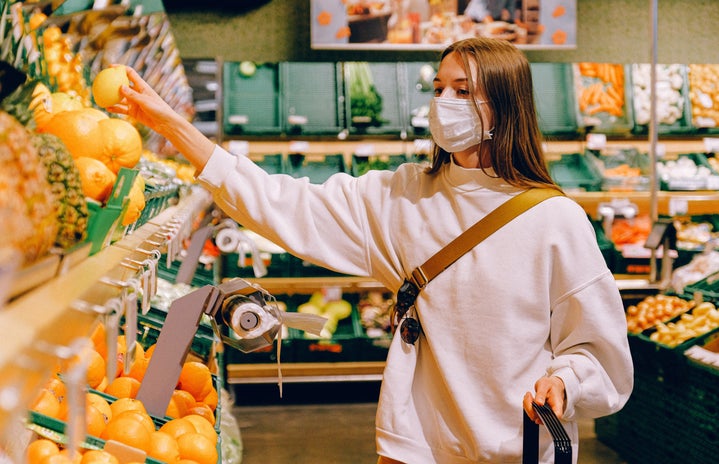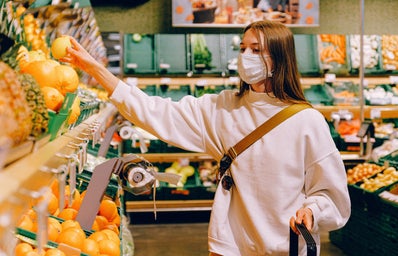At the start of autumn quarter 2019, I arrived at UW’s campus the same as any other freshman: bright-eyed, bushy-tailed, and eager to meet new people and have new experiences. As I unpacked my things, I was filled with pure excitement and anticipation. Like everyone else, I wasn’t expecting a global pandemic to unfold a few months later and diminish the latter half of my school year. They certainly didn’t say anything about that at my freshmen orientation.
It goes without saying that this year has been a disappointment for many of us. We all arrived at UW last fall with expectations about how the year would play out. Many of us were hoping to join a club to connect with new people. Some of us were planning to apply for an exciting internship. A few of us were possibly even preparing to study abroad this spring or summer to experience a new culture. All of that wiped away by the pandemic and the failure of men in power to respond appropriately to it.
It really, really sucks. Not just because our hopes and dreams for 2020 have been curtailed, but because of the powerlessness many of us feel in this situation. If we look at the way our predominantly male executive leadership handled this pandemic in its early stages, we see complete failure to act comprehensively. Instead, the Trump administration deliberately censored information about the virus to keep people “calm.” President Trump has also consistently endorsed the re-opening of establishments despite COVID cases rapidly increasing across the U.S. The incompetent acts of the most entitled and powerful men in our government are the reason why this year of college has been stolen from us.

It’s easy to look at this situation and throw up our hands in defeat. How can us young students possibly compete with the powerful suits in DC and Olympia that appear to be dictating the course of this pandemic? Well, as powerless as we all may feel, it turns out that we have more control over this crisis than we think. Through our individual preventative actions, we young women can play a crucial role in how the rest of this pandemic will unfold. We have the chance to save lives through our actions, something our government is failing to do.

It’s common knowledge at this point that elderly populations are most likely to be hospitalized or die from COVID-19. Thus, many young people in the U.S. have ignored governmental mandates and continued living their lives as usual on the premise that COVID-19 won’t kill them if they catch it. As a result, from June to August of 2020, the CDC reported that “COVID-19 incidence was highest in persons aged 20-29 years.”
Nearly every prominent news outlet has reported stories about young people around the country congregating at parties and non-socially distant events without masks, creating Petri dish-like environments for the virus to spread throughout. In particular, universities have been the sites of super spreaders. The New York Times’ “Coronavirus at U.S. Colleges and Universities” tracker shows that there have been 321,000 cases of COVID-19 across over 700 colleges in the U.S. If we look a little closer to home, there have been over 3,000 cases at 40 colleges in Washington State, 875 of which were at UW’s Seattle campus.
Many of the UW cases are results of outbreaks on Greek row. Uncontrollable and reckless parties continuously thrown by frat boys (yes, even amid a pandemic) have caused COVID cases to skyrocket on campus. As of December 7, there have been 395 positive cases confirmed in relation to a Greek community outbreak a couple of months ago.
These outbreaks among young people certainly don’t go unnoticed, as the CDC explains that “strict adherence to community mitigation strategies and personal preventative behaviors by younger adults is needed to help reduce infection” of COVID-19. Since young people are clearly spreading this virus like wildfire, choosing to change our actions could significantly flip the script.

The privileged men in our government and community have shown little concern for the health and safety of people in this country. Storefronts and schools are opening and frat parties are raging on, all while COVID cases climb and harm thousands of people. But not all hope is lost. Considering how heavily COVID-19 is spreading among young people and how ineffective male action has proven to be, this might be one of the few times in history that we, as young women, can have a large impact on a major global crisis through our actions. Let’s capitalize on it.
We know what we have to do. We must wear masks whenever we go out in public, wash our hands frequently, and reduce our contact with others. This may require many of us to re-think why we’re really in college and what it really means to have a “college experience.” Many students online have expressed outrage at social distancing mandates and have refused to stop attending parties on Greek row. Yes, partying might be fun, but is that really the reason why we’re attending a nationally ranked university? Re-focusing our attention on our studies, cultivating an academic and professional career, and connecting with people virtually has to take precedence as far as collegiate activities go. Frat parties can and should wait.
And while many of us are planning our returns home for winter break, we have to reconsider whether going home is the best choice for the common good. If you’ve been in contact with others or haven’t been wearing a mask, spending the winter holidays with your grandparents isn’t a smart move. Choosing to FaceTime them instead could save their lives.



